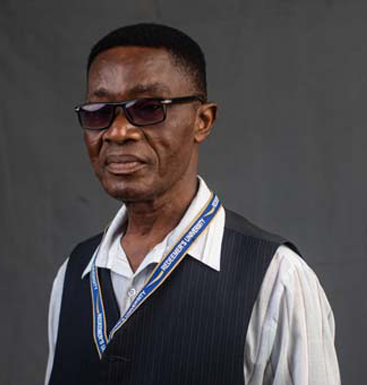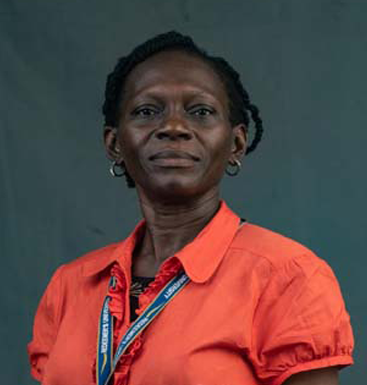Admission Requirements
(a) Entry Requirements
(i) 5 ‘O’ Level/SSCE credits in one or two sitting(s); credit passes must include: English Language, Mathematics, Economics/Geography/Government and any other relevant subject.
(ii) Minimum UTME requirement as set by JAMB in relevant subjects
(b) Direct Entry Requirements
(i) In addition to ‘O’ Level requirements, candidates must have passed at credit level in at least two Arts or Social Sciences subjects in the H.S.C. or G.C. E. ‘A’ Level.
(ii) Minimum of Upper Credit in Ordinary National Diploma in Social Work or Community Development or other related courses acceptable to the department.
(iii) N.C.E. with distinction or credit or merit in any Social Science subject.
(iv) University Diploma with a minimum of Upper Credit in Social Work or Community Development, Industrial & Labour Relations and other University Diploma related courses to the course of study.
Career Prospects
Drawing on a wide range of observatory, statistical, historical and comparative methods, a B.Sc. degree in Sociology will provide you with an understanding of the fast changing nature of human life and society, and how social issues like inequalities, diversity, poverty, migration, religion and legal norms affect, change and shape corporate and government policies and debates.
Sociology is an exciting and challenging discipline that involves the application of social theory and research in studying society, culture and institutions in improving the lives of people, productivity of an organisation and the effectiveness of government. It also offers valuable preparation for careers and fields that involve investigative skills and working with diverse groups.
At Redeemer’s University, you will be taught by a strong academic team with a sound curriculum which focuses on all aspects of human behaviour: its personal, religious, social and cultural dimensions in understanding society and identifying opportunities for change and development. It embraces the development of theories that explain the changing nature of social behaviour in our immediate and other societies as a means to understanding global and social change in tackling social issues.
A B.Sc. degree in Sociology is a highly marketable qualification which would open doors to a wide range of career roles. Graduates will also be equipped with transferable critical thinking and advanced problem solving skills to help them succeed in a diverse range of careers.
Sociology graduates are relevant in the area of policy formulation and implementation. For instance, an industrial sociologist is professionally equipped to proffer strategies to improve labour-management relations in industrial organisations and people’s behaviour in the world of work.
A medical sociologist understands better the socio-cultural context of health and illness behaviour and can proffer expert opinion and policy recommendations on diverse contemporary health challenges such as malaria, HIV/AIDS, maternal and child health, the cost of healthcare procurement and traditional medicine utilisation. Sociology surely positively affects lives and creates a better society that guarantees human dignity.
Given the usefulness of sociology, limitless opportunities abound for graduates of sociology in Nigeria and any part of the world. Highlighted below is the list of some of the roles a sociologically trained mind can easily fit into:
- Advertising Staffer
- Banker, Computer Analyst
- Consumer Relations Worker
- Control Engineer, Data Entry Manager
- Human Resources Manager, Insurance Agent
- Issues Manager, Labour Relations Staffer
- Market Analyst, Merchandiser/Purchaser, Planning Assistant
- Alumni Relations Worker
- Extension Service Specialist, Public Health Educator
- Juvenile Court Worker, Parole Officer
- Admissions Counsellor, Affirmative Action Assistant
- College Placement worker
- Student Personnel Worker, Correctional Counselor
- Correctional Staffer, Criminal Investigator
- Police Department Staffer
- Criminology Assistant, Data Analyst
- Market Researcher
- Social Research Assistant
- Demographer Assistant, Interview
- Census Research Assistant, Consumer Researcher
Staff Directory

Senior Lecturer
Dr Mrs Wellington Olubukola Abimbola
Research Area
Family Demography, Maternal Health, Adolescent Health & Sexuality, Gender/Women’s Studies
Contact Information
- okeo@run.edu.ng
- 0703 284 1162
- Research Gate
- Google Scholar

Senior Lecturer
Dr Okunola John Lola
Research Area
Social Change and Development/Education
Contact Information
- okunolaj@run.edu.ng
- 08034212489
- Research Gate
- Google Scholar

Dr Mrs Opadere Ayodele Aderemi

Reader
Dr Olajire Oluyinka Olutola
Research Area
Crime, Delinquency, Social Problem, Drug Abuse and Addiction
Contact Information
- falooreo@run.edu.ng
- 08108909183
- Research Gate
- Google Scholar

Assistant Lecturer
Mr Adeoye Adeponle
Research Area
Medical Sociology
Contact Information
- adeoyead@run.edu.ng
- 08147645345
- Research Gate
- Google Scholar

Assistant Lecturer
Mr Sunday Olutayo Fakunle
Research Area
Sociology (Public Health, Change and Development in African Communities)
Contact Information
- fakunles@run.edu.ng
- 08062207930
- Research Gate
- Google Scholar
